40 impressive pictures of the Korean War
On June 25, 1950, the Korean War began, turning the two parts of the once united country into irreconcilable opponents. The Korean War is often called "forgotten", but these photos will help you remember the events that took place more than 70 years ago.


One of the four American soldiers of the 21st Infantry Regiment was found halfway to the forward observation post and the front line on July 10, 1950. The photographer reported that the soldiers were most likely caught on the night of July 10 and then shot. Many were shot in the head, their hands were tied behind their backs. In addition, a large number of weapons and military equipment were destroyed. (AP Photo)

An American military tank rides after a column of prisoners of war on a village street on September 26, 1950. (U.S. Department of Defense/U.S. Marine Corps/S. Sgt. John Babyak, Jr.)
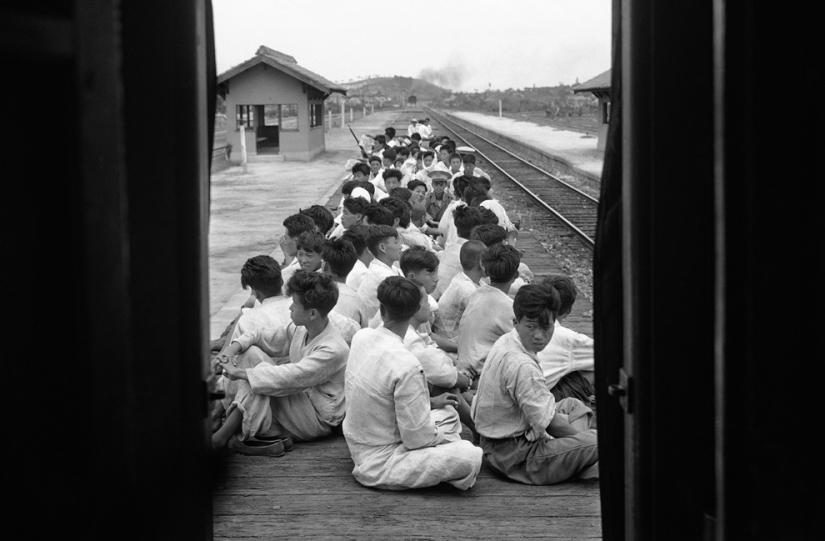
South Korean recruits are sent on a platform car to fight against the North Korean invaders. They were given a send-off with all honors and with an orchestra on July 17, 1950. (AP Photo)

A Bell helicopter with wounded Marines from the front lines lands on the site of a medical unit in 1950. Military orderlies are already waiting for the wounded with stretchers to hurriedly carry them to the tents that serve as operating rooms (in the background). (U.S. Department of Defense/TSGT. Charles B. Tyler)
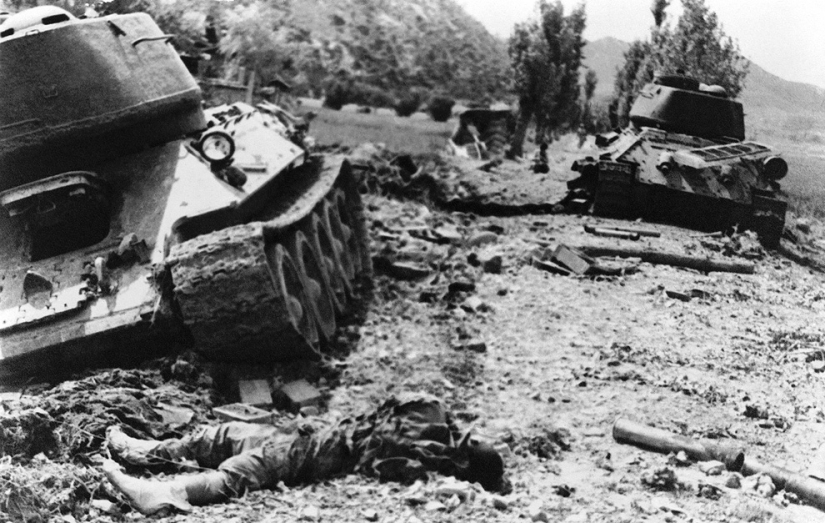
The corpse of a North Korean tanker lies on the ground among the damaged tanks in Indong on August 13, 1950. (AP Photo)
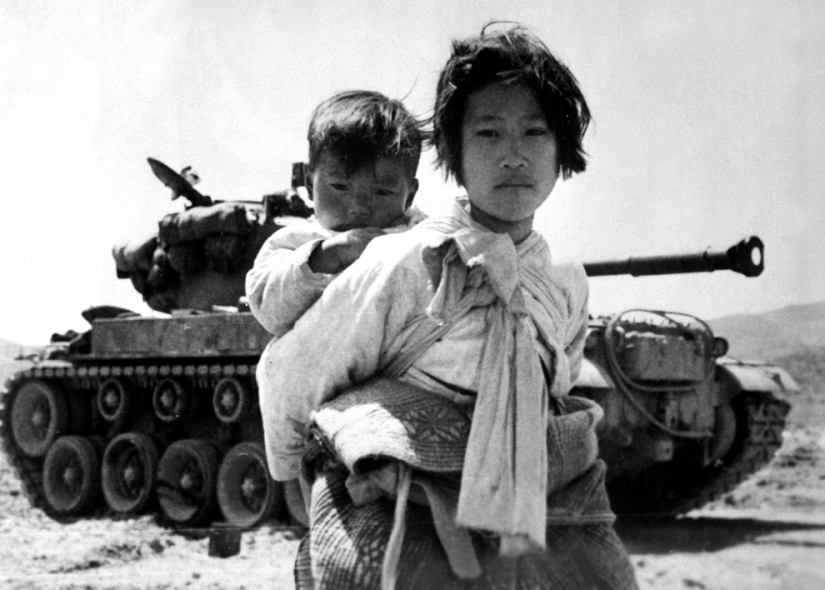
A Korean girl with her brother on her back wearily passes by the M‑26 tank on June 9, 1951. (U.S. Navy/Maj. R.V. Spencer, UAF)
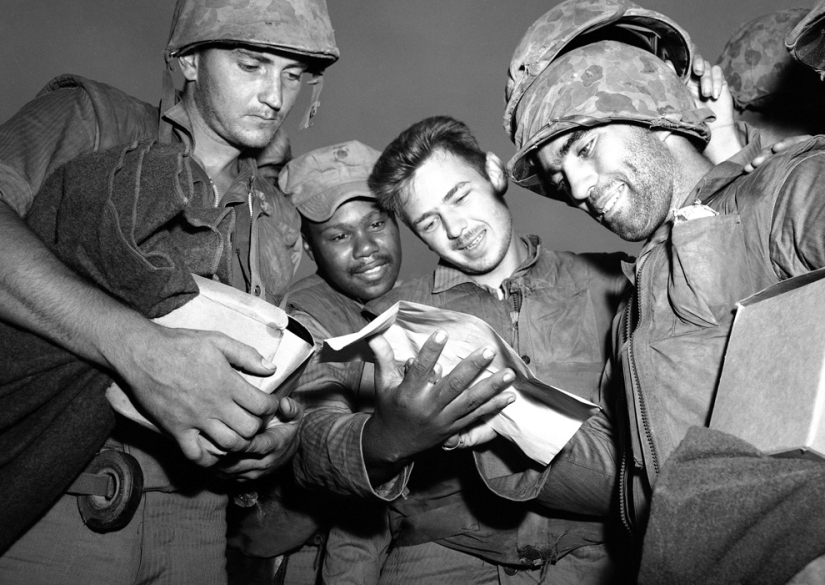
Four tired American Marines who have just returned from the Western Korean front line read the good news that the armistice agreement will be officially signed very soon, on July 26, 1953. (AP Photo/George Sweers)

A command post somewhere in South Korea on July 12, 1950. American soldiers on duty in an armored personnel carrier disguised as hay. (AP Photo/Charles P. Gorry)
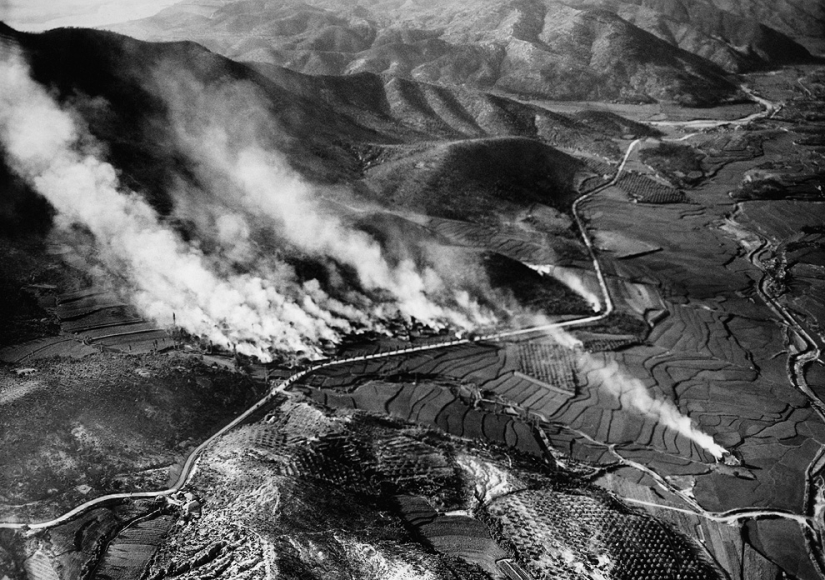
Smoke rises from the ruins of the village of Agok in the northern part of South Korea in August 1950. (AP Photo/Max Desfor)

North Korean prisoners of war captured during the Battle of Yongsang on September 2, 1950, sit on the hood of a jeep under the protection of American infantrymen. (AP Photo)

This photo of the US army, once considered "top secret", is one of a series of photos from the summer execution of 1,800 South Korean political prisoners in Taejon in July 1950. Historians and survivors claim that South Korean troops executed many civilians outside the front lines when the UN troops retreated before the North Korean army in the mid-50s. They were executed on suspicion of communist sympathies and possible interaction with the enemy. (AP Photo/National Archives, Major Abbott/U.S. Army)
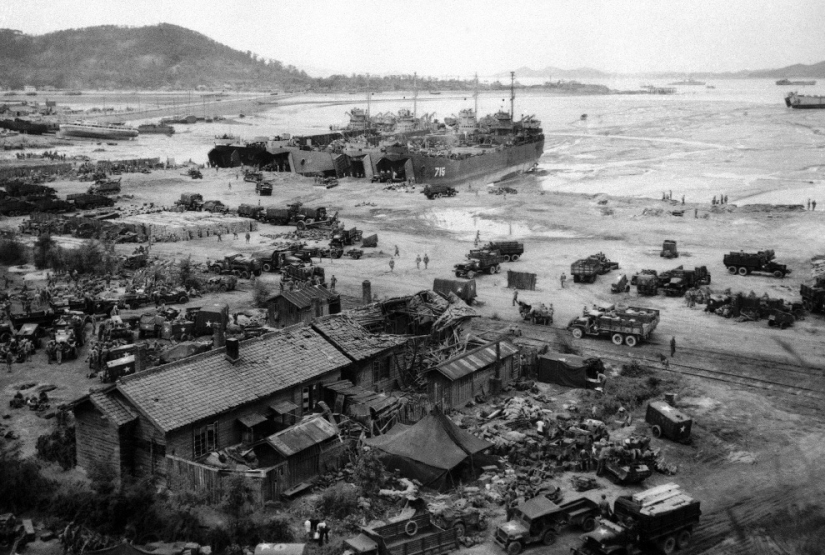
Four landing craft unload on the beach in Incheon on September 15, 1950. (AP Photo)

General Douglas MacArthur (in the passenger seat in a leather jacket) inspects the new Incheon Front in West Korea on September 19, 1950. He is accompanied by Major General Edward M. Almond (left), commander of the 10th Corps, and Vice Admiral Arthur D. Strable, commander of the Fifth Fleet. (AP Photo/U.S. Army Signal Corps)

A general view of the burnt-out city of Daejeon on September 30, 1950. (AP Photo/Jim Pringle)
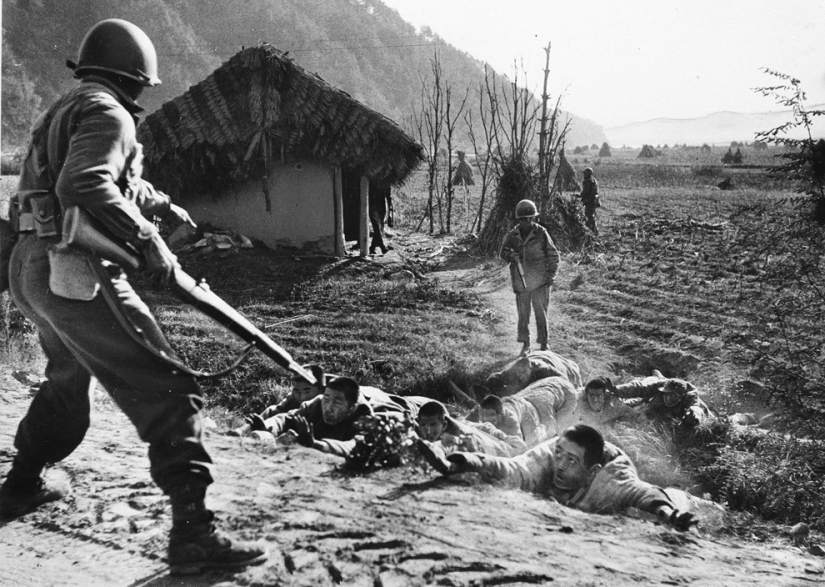
American soldiers withdraw prisoners of war, November 16, 1950. (AP Photo/Hank Walker)
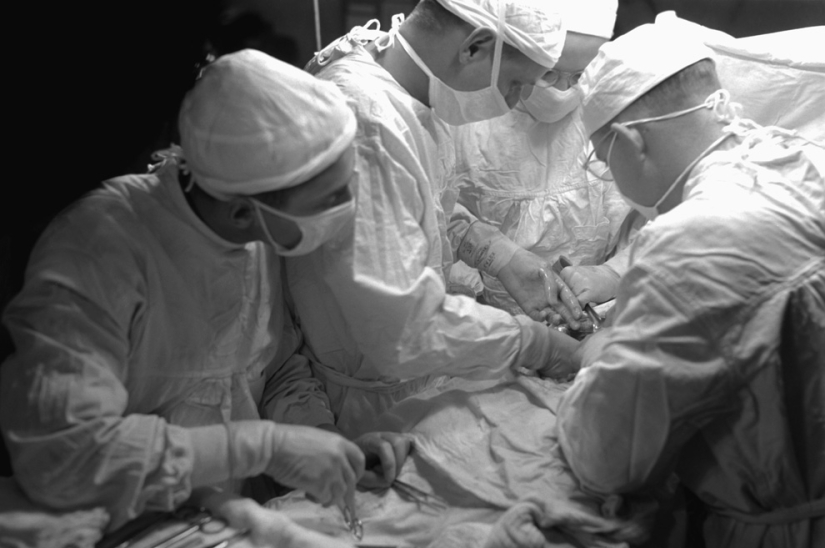
Doctors operate on a Marine wounded in a shootout on June 25, 1950. (U.S. Department of Defense/TSGT. Robert H. Mosier)
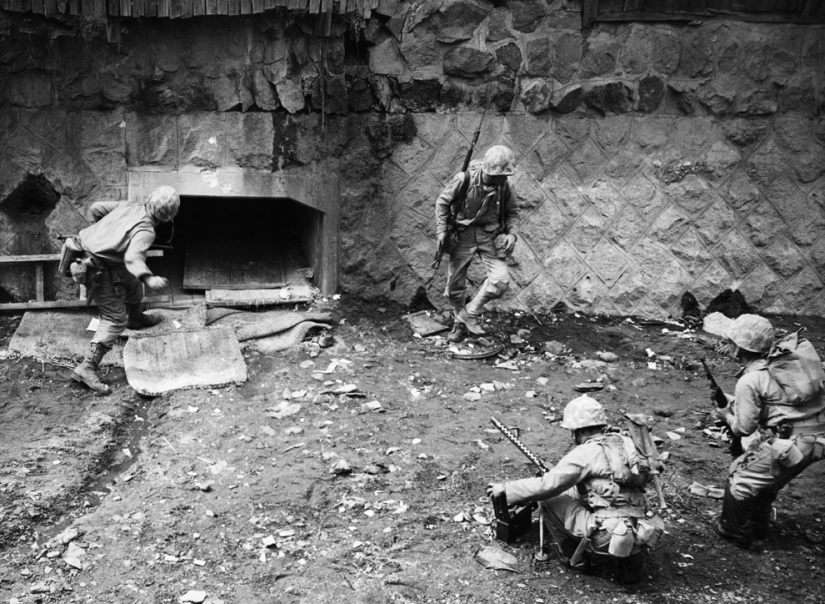
After civilians reported that North Korean soldiers were hiding in this tunnel, American Marines threw a grenade there. The entrance to the tunnel is covered by a machine gunner and an infantryman. The photo was taken in September 1950. (AP Photo/Max Desfor)
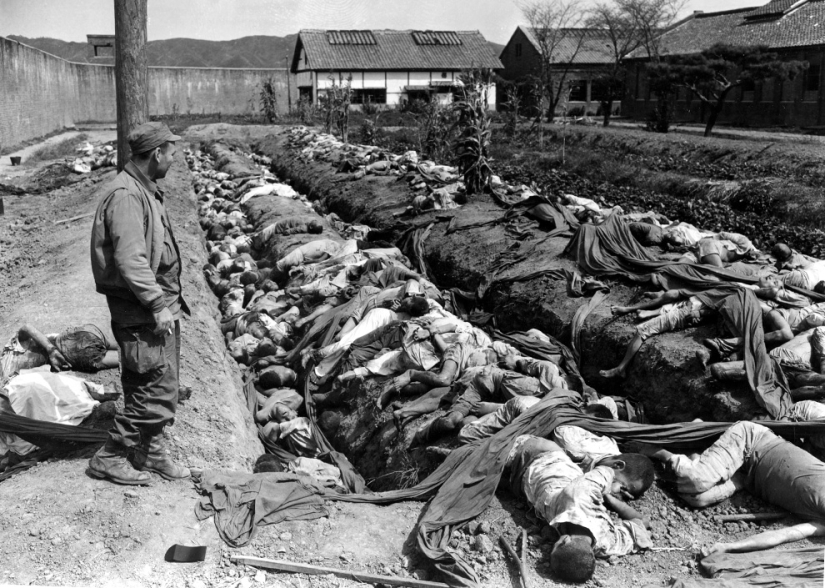
The bodies of 400 Korean civilians in the Daejeon prison yard. These people were tied up and killed by retreating Communist forces before the 24th Platoon of the American Army entered the city on September 28, 1950. The prisoners had to dig their own graves before being shot. On the left is the war correspondent Gordon Hammock. (AP Photo/James Pringle)
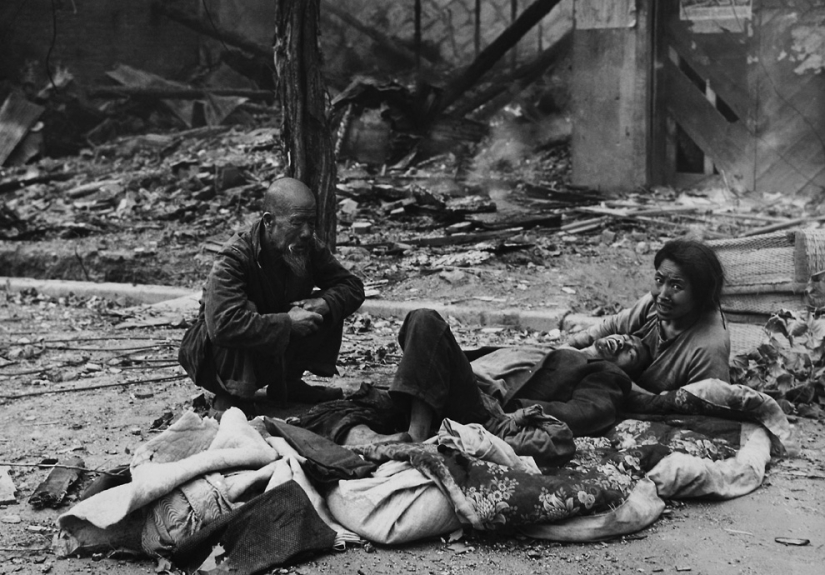
Koreans lie on the street among the rubble after the fighting in Seoul in September 1950. (AP Photo/Max Desfor)

Parachutists of UN troops jump out of a plane near the city of Suncheon, North Korea, on October 20, 1950. (AP Photo/Max Desfor)
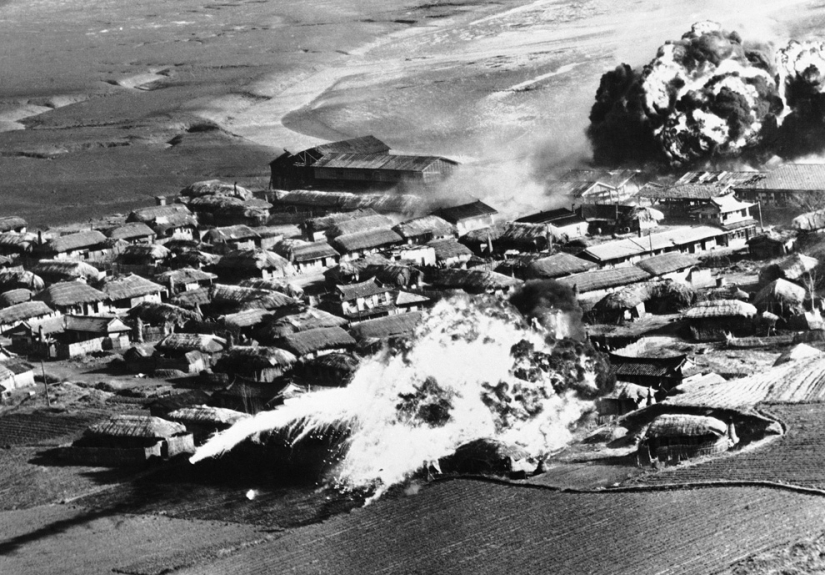
Thatched huts burn after the bombing of a supply collection point in North Korea on May 10, 1951. (AP Photo)

An American tank makes its way through an enemy barrier on a road near Seoul on October 7, 1950, while infantrymen from the 7th unit are preparing to break into enemy territory and end sniper fire. (AP Photo)

After the shootings and bombings in this area, the trees are like matches. This photo was taken on October 22, 1950 on Hill 931 – one of the main peaks of the Broken Hearts Pass in Korea. In the photo, you can see a complex system of trenches and bunkers of the Communists. This hill was captured by UN troops twice, the last time on October 6, 1950. (AP Photo/GS)
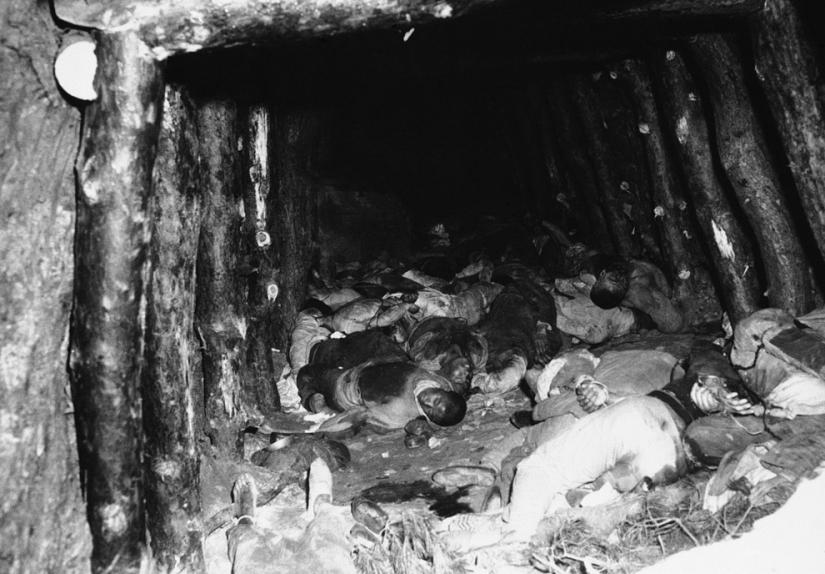
The bodies of more than 60 South Korean civilians beaten to death in the Kum Bon San mine, near Tuba-ni on October 19, 1950. They were killed by the North Korean Communists who brought them here from the prison in Chinnampo. The bodies were found by UN troops. (AP Photo)

British and Australian troops search houses in Hwanju on October 17, 1950 during combat operations on their way to the North Korean capital Pyongyang. (AP Photo/Max Desfor )

Landing boats with American soldiers on board rush through the mine-infested waters of Wonsan Harbor to the east coast of North Korea on October 26, 1950. About 50,000 American soldiers landed on the beaches of North Korea to help the allied troops advance to the Manchurian border. (AP Photo/Gene Herrick)

Residents of Pyongyang and refugees from other cities of North Korea climb the fallen rungs of the city bridge, trying to escape from the approaching Chinese troops. (AP Photo/Max Desfor)

Chinese soldiers surrender to American Marines on December 9, 1950. (U.S. Department of Defense/SGT. F.C. Kerr)

Close interaction of the aviation and ground American units during a shootout with the Chinese in Korea. American Marines are moving forward after effective air support from the "Corsairs F4U-5" on December 26, 1950. (U.S. Department of Defense/CPL. P. McDonald)

The bodies of American, British and Korean soldiers were collected for mass burning in Koto-ri on December 8, 1950. (U.S. Department of Defense/SGT. F.C. Kerr)
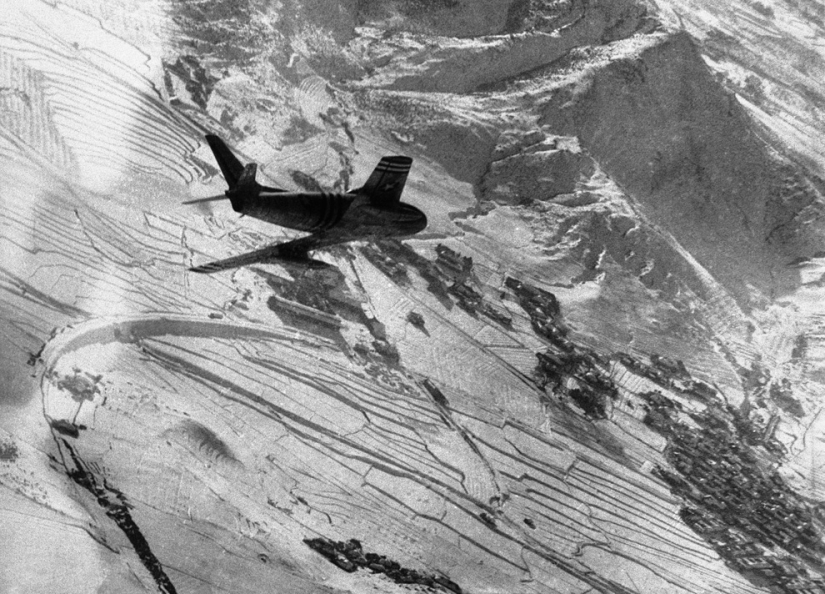
An F-86 Sabre fighter jet prepares to attack a military camp in a snow-covered Korean village below on January 28, 1951. (AP Photo)

The bound hands and the snow melted by the breath are the "traces" of a Korean civilian who was shot and left for dead by the retreating Communists. (AP Photo/Max Desfor)

Canadian infantrymen read the news from home while waiting for orders to attack Chinese Communist forces on the Korean front on February 29, 1951. (AP Photo)
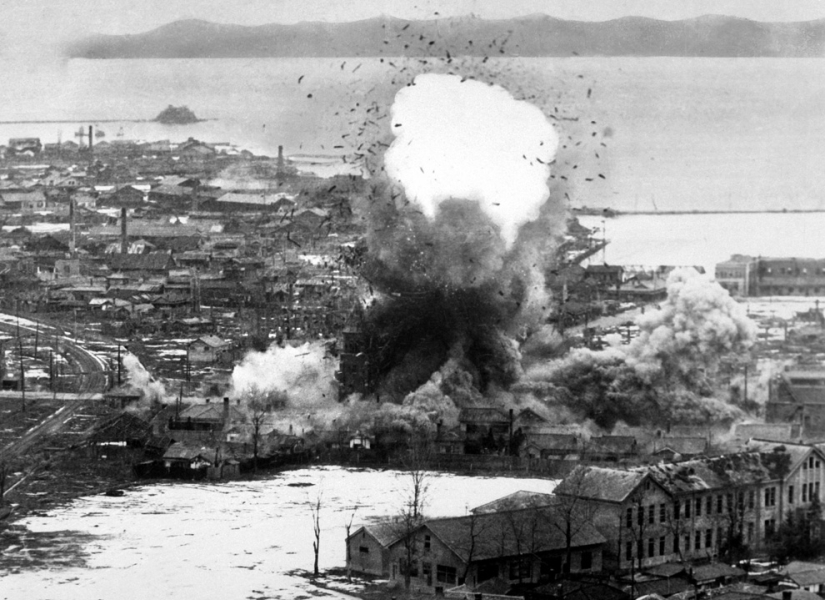
The warehouses and docks of Wonsan, an important eastern port, felt the full weight of the destructive bombing carried out by the American B‑26 Invader in 1951. (U.S. Department of Defense/USIA)

A tank of the 25th division uses a flamethrower against a long-term defensive structure in a mountain, near the Khan River on March 30, 1952. (AP Photo)
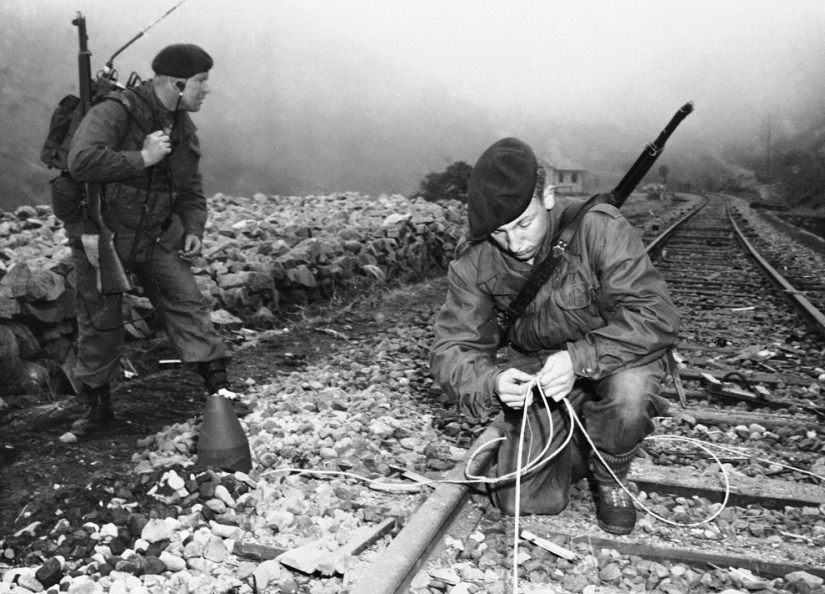
British soldiers, brought to the shore of the DPRK by an American warship, place explosives on enemy railway tracks on April 13, 1951. About 90 meters of railways, vital for the Chinese Communist forces, were destroyed just a few kilometers from the deployment of two enemy divisions. (AP Photo)
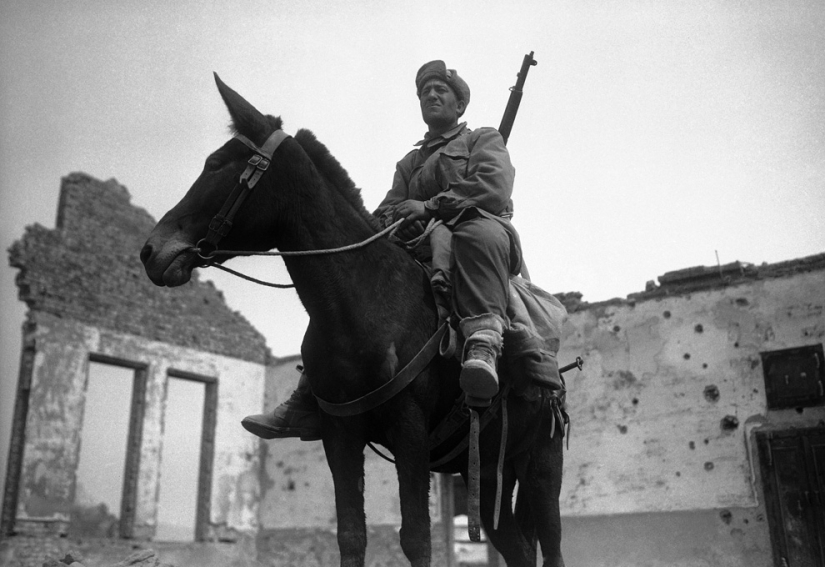
A Turkish soldier, tired after a long walk, as part of the UN troops, sits astride a mule, which he took from an enemy soldier on May 5, 1951. He ambushed an approaching Chinese man and seized his mule to escort the stragglers to the rear. (AP Photo/Robert Schutz)
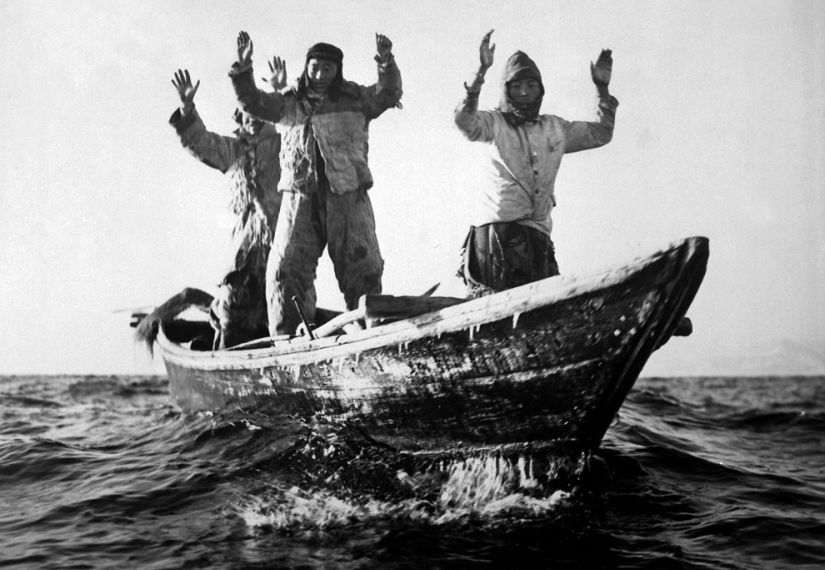
Three Korean communists in a fishing boat were captured by the soldiers of the cruiser "Manchester" off the coast of Korea on May 10, 1951. (U.S. Department of Defense/U.S. Navy)
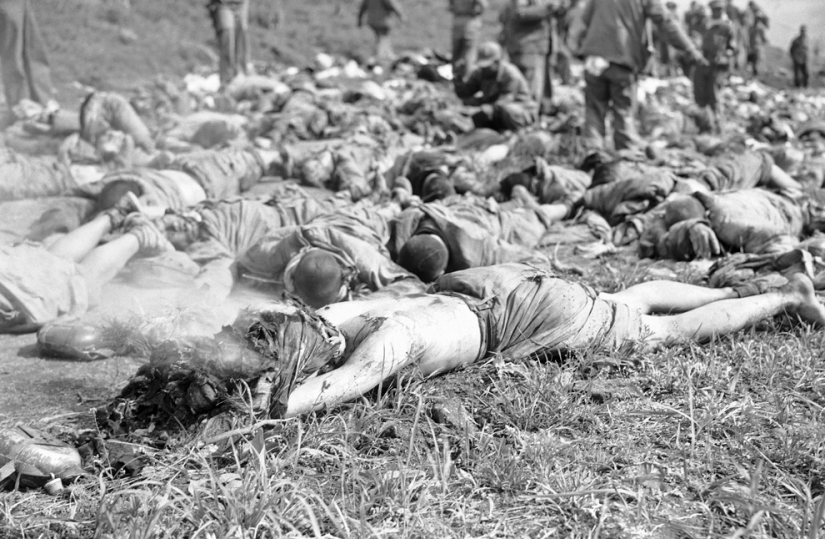
Dead Chinese soldiers at the assembly point, the burned uniform on one of them is still smoking. After the Allied forces repelled a serious enemy attack on the central front on May 17, 1951. (AP Photo/ENJ)
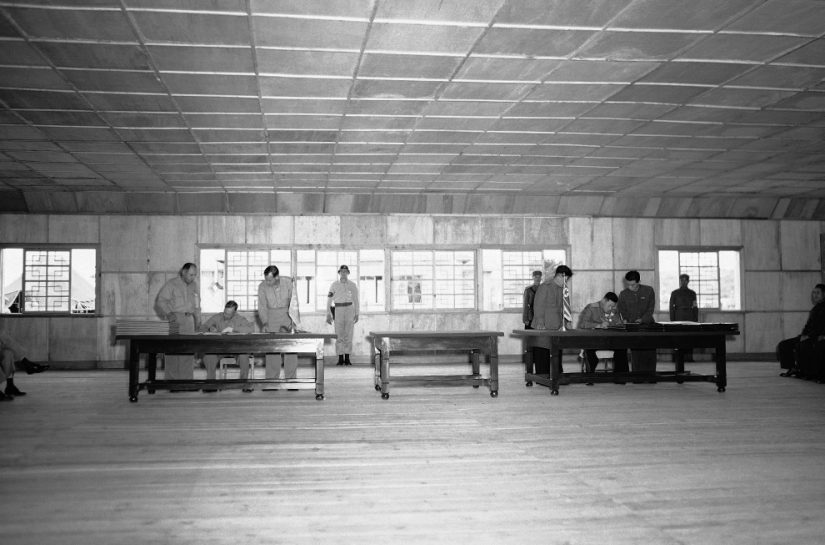
General William C. Harrison (left) and General Nam Il (right) sign the agreement on the cessation of hostilities that ended the Korean War, near Panmunjom on July 27, 1953. (AP Photo)
Keywords: North Korea | Korea | Anniversary | War | Asia | South Korea | History
Post News ArticleRecent articles

It's high time to admit that this whole hipster idea has gone too far. The concept has become so popular that even restaurants have ...

There is a perception that people only use 10% of their brain potential. But the heroes of our review, apparently, found a way to ...
Related articles

On November 29, 1987, a South Korean airliner en route from Vienna-Baghdad-Abu Dhabi-Seoul disappeared from radar in the Andaman ...

The TV series "Sex and the City", which was released in 1998, is rightfully considered one of the masterpieces of world television. ...

The term "dark tourism" means visiting places that are dangerous to life. Desperate travelers go on risky trips for the sake of ...

New Year's is a time to surprise and delight loved ones not only with gifts but also with a unique presentation of the holiday ...